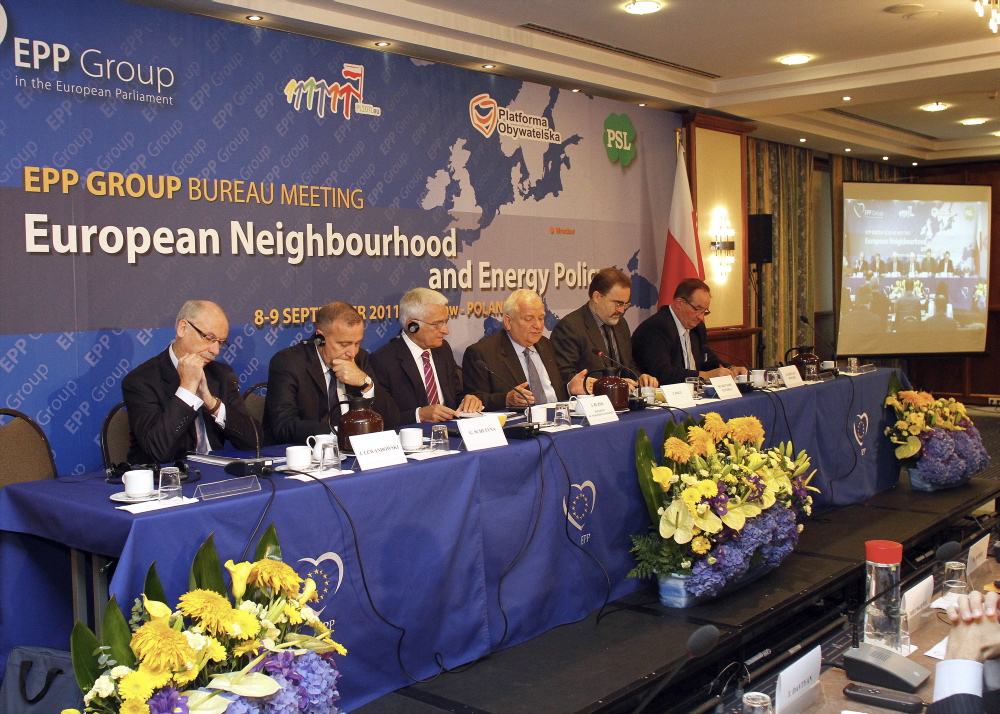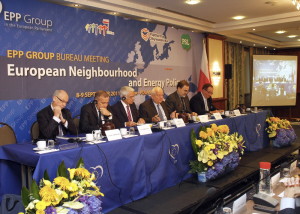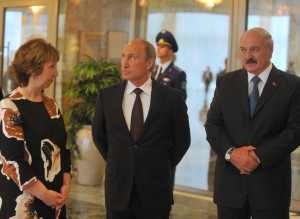The EU and the New East: Integration, Confrontation, and Illiberalism in Belarus
 The European Neighbourhood Programme aims to promote integration of the EU's eastern and southern environment. https://flic.kr/p/oW3buZ
The European Neighbourhood Programme aims to promote integration of the EU's eastern and southern environment. https://flic.kr/p/oW3buZ

The establishment of visa-free travel to Belarus for citizens of 80 countries (including European Union Member States as well as the United States) is the latest episode in the ongoing geopolitical struggle opposing Western great powers to the Russian Federation in the New East. This new policy may help draw new tourists to the country, a source of revenue which the economy could certainly benefit from: Belarus’s dependence on Russia for most of its international trade has resulted in negative growth rates for the past couple of years: -3% in 2016, after -3.9% in 2015. Beyond economic diversification, visa liberalization is part of a greater attempt at a geopolitical rapprochement between the EU and Belarus; a rapprochement that has become increasingly attractive to the Belarusian president, Alexander Lukashenko, since Russia’s annexation of Crimea in 2014. In spite of the widespread acknowledgement of the policy’s role in triggering the Russian intervention in Ukraine, this new tentative rapprochement involves the European Neighbourhood Programme (ENP) once again. It seems Western powers failed to learn their lesson from Crimea; continued engagement with Belarus is likely to toughen the Russian stance. These observations may lead some to argue that tensions with Russia are simply the price to pay for the West’s charitable socialization of New Eastern states into norms of liberal democracy. However, the case of Belarus shows that the West has yet to adjust its policies to its charitable intentions. Indeed, the EU is not only continuing on the dangerous path of confrontation with Russia, undeterred by the Ukrainian events of 2014, but it has also failed to send the right signals and incentives for Belarus to engage in reform. On both counts, it must adjust its aim.
The West’s advances to Belarus. The European Neighbourhood Programme is a set of bilateral Actions Plans or Association Agendas between the EU and each of the 16 partner countries, complemented by regional and multilateral cooperation initiatives, such as the Eastern Partnership (involving Armenia, Azerbaijan, Belarus, Georgia, Moldova and Ukraine). The programme’s four objectives are: financial support of its near-abroad to the east and south, technical policy support, economic integration, and easier circulation of persons across borders. Of the 16 partner countries, it is notable that three have remained outside most ENP structures; Libya, Syria, and Belarus’s plans and agendas under the ENP remain “not yet activated.” According to David Cadier, the ENP can be understood as an attempt to replicate the transformative power exerted in the past over the EU’s environment through the enlargement process, even though it was not designed as a clear alternative to membership, but rather as an “indefinite, composite, and multidirectional policy that remained ambivalent about its ultimate purpose.”
The problem of the ENP lies in its inevitably state-led and geopolitical apprehension of the New East. In Brussels as much as in academia – and despite a general acknowledgement of Russia’s increasing assertiveness – it has been repeatedly claimed that the EU’s neighbourhood was “an area where [it] could affirm itself as a foreign policy actor,” an area in which it “need not have any complex about pursuing its interest.” Precisely, the EU’s continued failure to grasp that its eastern neighbours also happen to be perceived as an invaluable and necessary territorial buffer by Russia has significantly impacted the lives of countless civilians in Ukraine and Georgia. The ENP is indeed widely acknowledged for its role in triggering the 2014 Russian intervention in Ukraine. Western powers need to learn their lessons from history; the 2008 Russo-Georgian War and Russia’s 2014 annexation of Crimea have indeed provided ample evidence regarding Russia’s firm intentions for its near-abroad.
Russian imperial ambitions. As demonstrated by Agnia Grigas, Russia has increasingly pursued a reimperialization policy since the mid-2000s. It aims to progressively co-opt the Russian diaspora dispersed in the former Soviet republics through passportization and resettlement policies, ultimately expanding the Federation’s territory and geopolitical weight. It is therefore particularly aimed at regions of its near-abroad with significant Russians ethnic and linguistic minorities – who have been increasingly referred to as Russian ‘compatriots’ in the process.
Together with Armenia, Belarus has never really left the imperial orbit of Russia, let alone its large sphere of influence. It could not be clearer that, should the West continue to eye such a closely-guarded and prized part of the Russian backyard, it will elicit a tougher stance from Moscow. As demonstrated in the case of Ukraine, Russia has the power to fuel societal divisions and target vulnerable border territories to serve its neo-imperial project. Generally speaking, Moscow has clearly signalled that its will to ‘protect’ its diaspora translates into a greater resolve to ‘protect’ its neighbouring states from integration into the Western sphere of influence, and that it will act upon this resolve regardless of whether countries like Armenia and Belarus want protection or not.

https://flic.kr/p/oW3buZ
Between East and West, Lukashenko’s illiberalism. Unsurprisingly, the Kremlin’s reimperialization project has generated tensions between the great power and its neighbouring states. In the wake of Russia’s annexation of Crimea, Lukashenko has been able to carefully forge a middle position for Belarus between Kiev and Moscow. Although the diplomatic maneuvering merely aimed to maintain good relations with both of its neighbours, it has resulted in the EU’s lift of sanctions against the president and 170 fellow Belarusian officials in 2016.
Brussels grounded its lift of sanctions in “improving EU-Belarus relations.” Widespread criticism ensued, as the initial rationale for these sanctions – systematic state repression of fundamental human rights, civil rights, and political freedoms – has been little affected by geopolitical maneuvering. No reforms of the political and legal systems have been drafted. The lift of sanctions is therefore sending a “very wrong signal” to Lukashenko. Belarusian opposition leader Andrei Sannikov (exiled in Warsaw since 2010) has stressed that the EU’s gesture is nothing short of a “blessing [of the] gross and systematic violations of human rights.”
Belarus has often been dubbed the “last dictatorship in Europe,” and Lukashenko has ostentatiously declared he finds pride in his “characteristic […] authoritarian ruling style.” Unsurprisingly, elections since 1994 have not once failed to preserve his position in power. In a perfect illustration of competitive authoritarianism, the 2015 presidential elections lacked safeguards against multiple voting, restricted choice for voters, and were generally characterized by an uneven playing field between Lukashenko and his rivals. Belarus is also known for its state intelligence police, which is still named KGB, and its symbolic though extraneous parliamentary system. Although the EU’s sanctions were largely ineffective in incentivizing reform, their lift has signalled clear disengagement of the European community with the regime’s illiberalism; costly in geopolitical terms, the confrontational integration programme is no longer offset by its charitable intentions of liberal democratic socialization.
Lessons for Brussels. If the EU’s geopolitical confrontation with revisionist Russia minimally had the effect of incentivizing reforms in illiberal regimes, one could weigh the risk of angering the Eastern neighbour against the benefits of expanding human rights and civil freedoms. However, the EU’s ambivalent programme for its near-abroad has repeatedly failed to secure gains for civil societies, while fuelling the likelihood of yet another geopolitical escalation in Russia’s backyard. The EU needs to fundamentally rethink its eastern ambitions, bearing in mind that irrespective of whether it changes the nature of its integration effort to one promoting liberal democratic practices in domestic contexts, its foreign policy deployments will remain confrontational in the eyes of Russia.
